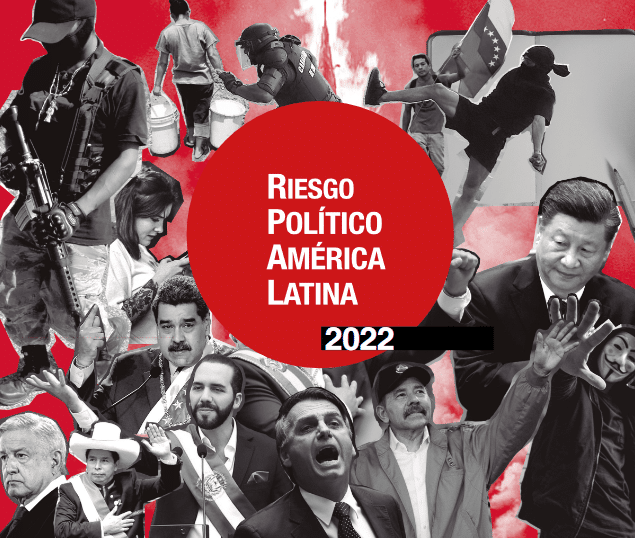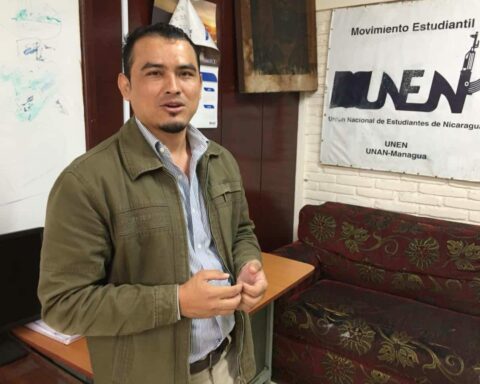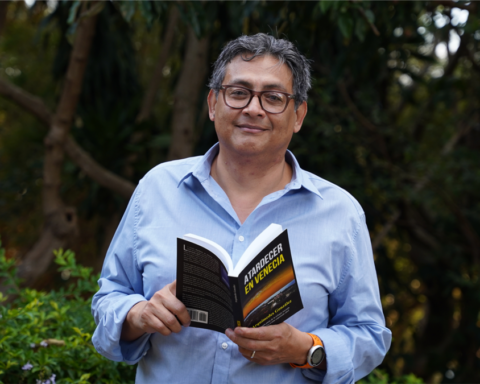At the end of 2021, the news for Latin America was not encouraging at all with an economic crisis in tow, an inequality that keeps citizens unsatisfied, the pain caused by the pandemic and with a good part of their countries suffering the deterioration of democracies, according to the Center for International Studies of the Pontifical Catholic University of Chile, which identified ten political risks for 2022 that make the immediate future more murky.
In the research titled “Political risk Latin America 2022”, The following political risks were identified for Latin America: democratic erosion, climate change, social protests, the migratory crisis (the case of Venezuela with its exodus of five million people is cited), illicit economies, political polarization, less and less foreign investment, the increase in cybersecurity crime and the rise of China in the region.
To reach these conclusions, an editorial team made up of four experts (Jorge Sahd K., Daniel Zovatto, Diego Rojas and María Paz Fernández) consulted 1,144 people in general and a panel of 170 experts, including former presidents, regional authorities, leaders of opinion and academics, with whom they were able to make a regional portrait based on the problems that are being faced in Latin America.
On the issue of democracy, in addition to remembering that Nicaragua, Cuba and Venezuela are three consolidated dictatorships —with high levels of corruption—, they mention Honduras, El Salvador, Bolivia and Guatemala as hybrid regimes, a perspective obtained from the index of The Economist Intelligence Unit 2020 in Latin America. The most difficult thing is that the pandemic, which was decreed by the World Health Organization in the first quarter of 2020, became an opportunity to weaken already weak democracies.
“Although the number of democracies has been maintained, more than half of the countries have experienced erosion in their elemental characteristics, leading to hybrid regimes to self-cratize and dictatorships to consolidate (International IDEA, GSOD 2021). A large number of governments took advantage of sanitary restrictions to weaken the rule of law, freedoms and institutional controls, ”the report indicates.
A distinctive characteristic, pointed out in the document, is that the threats to this democratic deterioration come from elected leaders who erode both the institutions and the freedoms of citizens from within.
They also regret that the regional mechanisms created for the protection of democracy, such as the Inter-American Charter, are not up-to-date and require urgent clarification in order to be truly effective in fulfilling their objectives. In addition to democracies that are fragile from an institutional point of view, citizen dissatisfaction is also described, which is reflected in “short political cycles and the frequent punishment of the officialdom”.
Involved in recurrent governance problems, the case of Peru or Ecuador is cited, but they also recall the attacks against electoral bodies in Brazil, El Salvador, Mexico and Peru, as well as the corruption scandals, discovered after the work of hundreds of journalists from the International Consortium of Investigative Journalists, which shook the reality of Chile, Colombia or Ecuador.
Stagnation and dissatisfaction of citizens
Most of the democracies are stagnant in a medium performance and the dissatisfaction of the citizens is reflected in two data, also highlighted in the text: 51% of those interviewed do not care if the government that arrives is democratic, as long as solve the problems according to the Latinobarómetro survey (October 2021). The other data is courtesy of another measurement, from IPSOS Global Advisor (August 2021), which reveals that five of the main Latin American economies —Chile, Colombia, Peru, Brazil, Argentina— are among the eight countries that lead the world populism index.

Criticisms of the elite by the governed constitute another element in this analysis, but also the need for a change in these strata. “It also requires elites and citizens more committed to democratic values. The renewal of regional elites with a vocation to listen and social responsibility is an imperative task for democratic health. The risk of deepening the current disconnection of the elites with the demands of the citizens, may end up hampering the democratic consensus ”, affirms the research.
The region is crossed by three crises, according to Sahd, who serves as a senior researcher at the Center for International Studies. A crisis marked by governance increasingly under greater tension, of expectations with a demanding and impatient citizenry and with high levels of uncertainty marked by the unknown of the new variants of the pandemic.
According to Zovatto, the outlook for this year is not positive and rather believes that Latin America will face another difficult year. “The levels of uncertainty, volatility, political risk and polarization will remain high. For their part, populism, anti-elite sentiment and xenophobic nativism will continue to be present and the combination of all this will make governance increasingly complex, ”he predicted.
The presentation of the report, which was carried out online, also included with the comments by Axel Christensen, Director of Investment Strategy for Latin America at BlackRock, Marisol Argueta of the Executive Committee of the World Economic Forum, Professor of Columbia University, José Antonio Ocampo and Executive Director, Sergio Fausto, of the Fernando Henrique Cardoso Institute.
The 36-page analysis contains more findings on the region such as the Chinese presence at a time of tension with the United States, as well as the lack of a political vision that has been a long-standing problem, as well as the inability to overcome political disagreements. at the time of generating a dialogue and focusing attention on internal affairs, putting aside international issues, which paradoxically occurs in the realm of globalization, that is, when the world is more connected.
Argueta highlights that it is good that there are electoral cycles in Latin America, but he questions the lack of a long-term vision of the nation. “We need to create consensus, we need to ensure that balance of powers, avoid that concentration of powers and ensure that there is a representation of the different sectors in the manifestation of public policies and hopefully a long-term vision can be generated that allows that certainty to attract greater investment, “added the official of the World Economic Forum.
For Fausto, the situation in Brazil, which has elections this year, has an important challenge on the subject of governance, because it represents the challenge of changing a trajectory that has been very negative in the last decade.
“We had two lost decades: the eighties, of internal debt, now from 2010 to 2020 another lost decade. In per capita terms, Brazil is poorer today than it was in 2010. I believe that in the short term the risks of a democratic breakdown decreased. They decreased because the resistance of the Brazilian institutions proved to be efficient enough to contain Bolsonaro’s impulses, but I believe that the problems in the longer term still remain, ”explained Fausto.
To Professor Ocampo, a native of Colombia, he explained that the most important issue in the context of the presidential elections next year has to do with social protests, even more than polarization. “It is possible that one of those center groups will win the elections. The last election ended up polarized between the right-wing candidate Iván Duque, supported by former president Álvaro Uribe, and the left-wing candidate Gustavo Petro, who is back in the current elections, ”said the expert, who considers that there is a great political fragmentation in a situation that is repeated in other countries, such as in Brazil.








